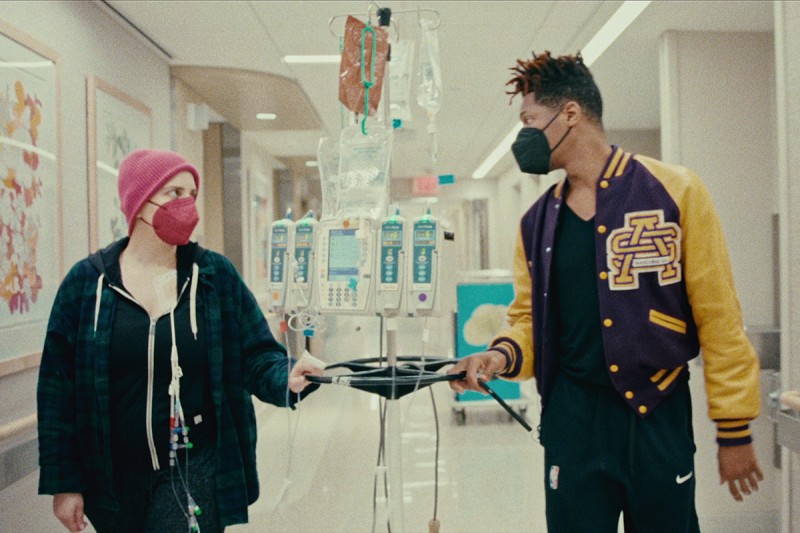
People with cancer often wonder: How do you live to the fullest during one of life’s most frightening experiences?
Unforgettable lessons in finding joy and meaning — even in the darkest moments — are found in the documentary American Symphony, which premiered on Netflix on November 29, 2023.
The film tells the story of Suleika Jaouad, an Emmy Award-winning and New York Times best-selling writer, advocate, and cancer survivor, and her husband, Jon Batiste, a Grammy- and Oscar-winning musical phenom and former band leader of The Late Show With Steven Colbert.
The movie — directed by Oscar-nominated and Emmy Award-winning filmmaker Matthew Heineman — was originally intended to document Jon’s first symphony, which premiered at New York’s famed Carnegie Hall.
But cancer has its own timetable.
In February 2022, Suleika received a bone marrow transplant (BMT) at Memorial Sloan Kettering Cancer Center (MSK), 13 years after she was first treated for acute myeloid leukemia. “Only weeks after I learned of my leukemia relapse,” she says, “we started filming from sunrise to long past sunset.”
Over the next seven months, she recalls, “We rode out the highest highs and lowest lows of our lives.” Cutting back and forth between music rehearsals and Suleika’s inpatient room at MSK influenced the film, she says. “[The movie] morphed from a straightforward music documentary into one about love and art and survival — about what happens when the human spirit is tested again and again.”
For decades, the staff of MSK’s BMT Service have devoted themselves to helping people not only survive, but thrive. This year, the service marks an exceptional milestone: the 50th anniversary of the first successful BMT ever performed using cells from a donor who was not related to the patient.
Since that breakthrough procedure led by Richard O’Reilly, MD (who continues to work at MSK), more than 120,000 people around the world have received transplants from unrelated donors.
Half a century later, the transplant team continues to help people like Suleika.
To mark the premiere of the documentary on Netflix, MSK has launched an important campaign in collaboration with NMDP/BeThe Match, who operate the world’s most diverse blood stem cell registry and have played a pivotal role in more than 125,000 blood stem cell donations.
The campaign is called “American Symphony: Become a Lifesaver.” The goal is to increase the number of people who register to donate blood stem cells, particularly in ethnically diverse communities.
Nearly three out of four patients who need a transplant do not have a fully matched donor in their family and must find an unrelated donor. As our population becomes more diverse, the urgency increases to find young, diverse individuals to join the registry.
Suleika’s personal experiences make clear what’s at stake.
“I have been the recipient of two lifesaving bone marrow transplants made possible by a a donor,” she says.
“In a world of heartbreak, how often do we get the chance to say we made a difference,” asks Suleika. “How often do we, with something as simple as a cheek swab, get a chance to save a life?
That idea is echoed by Selwyn Vickers, MD, FACS, President and CEO of MSK, “With the campaign, we aim to foster a community of lifesavers dedicated to making a meaningful impact in the lives of those in need.”
The campaign concludes on March 8, 2024, marking 100 days after the launch date, a nod to the typical isolation period after a bone marrow transplant.